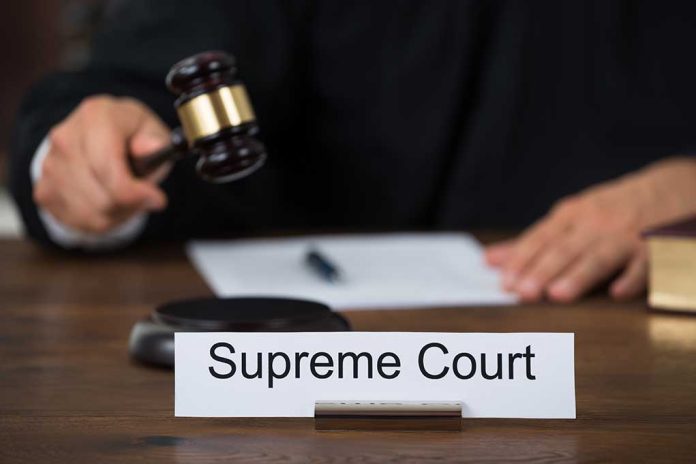
Georgia death row inmate Michael Wade Nance’s request for execution by firing squad has been denied, sparking a constitutional debate over execution methods.
Key Takeaways
- U.S. District Judge J.P. Boulee rejected Nance’s petition for execution by firing squad.
- Nance argued lethal injection would cause cruel and unusual punishment due to his medical condition.
- The U.S. Supreme Court previously ruled that Nance could challenge Georgia’s lethal injection protocol.
- The case highlights ongoing debates about the constitutionality of execution methods.
- Nance’s lawyers plan to appeal the decision, potentially prolonging the legal battle.
Court Denies Firing Squad Request
Michael Wade Nance, a death row inmate in Georgia convicted of murder in 1993, has been denied his request to be executed by firing squad instead of lethal injection. U.S. District Judge J.P. Boulee ruled that Nance failed to provide sufficient evidence that lethal injection would cause him severe pain, rejecting his argument that his unique medical issues would make the procedure unconstitutionally painful.
The decision comes after a complex legal journey that reached the U.S. Supreme Court. In a 5-4 ruling, the high court had previously determined that Nance could challenge Georgia’s lethal injection protocol under federal civil rights law. This decision overturned an earlier ruling by the 11th Circuit Court of Appeals, which had dismissed Nance’s claims.
Michael Wade Nance, on Georgia's death row for a 1993 murder, argued that lethal injection could cause him severe pain due to his medical history and proposed a firing squad as an alternative. https://t.co/KBZMP27iTc
— FOX 5 Atlanta (@FOX5Atlanta) February 15, 2025
Constitutional Debate and Legal Implications
The case has reignited discussions about the constitutionality of execution methods and the rights of death row inmates. Justice Elena Kagan, writing for the majority in the Supreme Court decision, emphasized that inmates are not limited to proposing execution methods currently authorized by state law stating, “Nance’s requested relief still places his execution in Georgia’s control. If Georgia wants to carry out the death sentence, it can enact legislation approving what a court has found to be a fairly easy-to-employ method of execution.”
This ruling opened the door for Nance to propose alternative methods, such as firing squad, which is not currently authorized in Georgia but is allowed in four other states. However, Judge Boulee’s recent decision focused on the lack of evidence supporting Nance’s claims about the potential pain from lethal injection, rather than addressing the firing squad argument directly.
Medical Evidence and Expert Testimony
During the proceedings, conflicting medical evidence was presented. A state doctor testified that Nance had undergone medical procedures requiring IVs without issues, contradicting Nance’s claims about his compromised veins. On the other hand, a doctor called by Nance’s lawyers stated that “no one actually knows” the exact effects of the lethal injection drugs on Nance’s body.
The U.S. Supreme Court has set a high bar for such challenges, requiring inmates to prove “a substantial risk of serious harm” and propose feasible alternatives. Judge Boulee determined that Nance did not meet this threshold, leading to the denial of his request.
Future Legal Battles
Nance’s legal team has announced their intention to appeal the decision, potentially extending the legal battle and further delaying his execution. This case continues to highlight the ongoing debates surrounding capital punishment and the methods used to carry out death sentences in the United States.
As the legal process unfolds, it remains to be seen whether Nance’s case will lead to broader changes in execution protocols or further constitutional challenges to lethal injection. The outcome could have significant implications for death row inmates across the country and the future of capital punishment in America.
Sources:
Justices rule for Georgia inmate seeking execution by firing squad
Judge denies Georgia death-row inmate’s request for firing squad
Judge rejects request from Georgia death row inmate to be executed by firing squad



